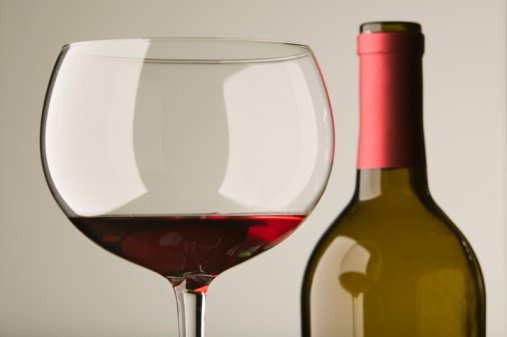Is a Glass of Wine a Day Good for You?
In 1991, journalist Morley Safer filmed a segment for 60 Minutes at a bistro in Lyon, France, wine glass in hand. He ordered pig’s head pâté, black pudding and foie gras. Then he set the stage for the so-called “French Paradox”: If the French have been feasting on fats and imbibing alcohol for ages, why don’t they experience higher levels of heart disease? Should Americans be following a French diet? These are questions we’re still asking today, over 30 years later.
Wine and wellness have been intertwined throughout history. Hippocrates prescribed wine as a wound dressing, a diuretic and as a “nourishing dietary beverage.” The Han Dynasty Chinese physician Hua To used both hashish and wine to induce narcosis before surgery. Jessica Sculley, the director of Commonwealth Wine Schools, recalls her Italian mother-in-law cutting water with wine to prevent water-borne diseases.
As the era of modern science came about, research often supported the notion that wine and health go hand in hand. Academic studies offered the idea that a glass of red is good for your heart. The History of Wine and Medicine, a book from the academic publisher Cambridge Scholars (not affiliated with Cambridge University), called wine the “Thinking Person’s Health Drink.”
But wine’s health halo is fading. Last year, the World Health Organization declared that no amount of alcohol is safe for consumption.
All this leaves drinkers questioning—are hangovers wine’s only health concern? Should drinkers abstain or should they order another round? There’s a long and a short answer here.
Is a Glass of Wine a Day Good for You?
The short of it is, wine is alcohol. Alcohol is a known carcinogen and consumption comes with risks.
The long answer depends on who you ask—compelling arguments can currently be made on both sides.
Many scientists, health advocacy groups and government bodies underline sobering recent research that alcohol is riskier than we’ve been led to believe. Drinking has links to being carcinogenic, neurotoxic to the brain and is thought to be a strong cause of both cardiovascular disease and breast cancer. Many are calling wine the new tobacco. Even French health officials are telling their countrymen to drink less wine.
However, there’s a camp that will say alcohol is a stress reducer, socializer and relaxer. “There are many studies that say drinking a glass of wine a day could have positive results,” says Dr. Laura Catena, a former emergency room doctor and now the managing director of the winery Catena Zapata.
Studies have linked a glass of red wine with longevity and lowering risk of heart disease and even aiding dementia treatment; others have found that everyday wine consumption may prevent chronic diseases. A study published in 2000 stated that people who drank moderately—from one to seven drinks per week—had “significant reductions in risk of death” compared to those who abstained from alcohol.
These results are conflicting, largely because of flawed research. “At this moment, it’s impossible to thoroughly say a glass is bad for you,” Catena says. “But that’s mainly because we’ve never seen a randomized control study done. There isn’t a gold-standard study that answers these questions.” Other experts agree.
“These studies are pervading the field of alcohol epidemiology and confusing communications about health risks,” says Dr. Tim Stockwell, a scientist at the Canadian Institute for Substance Use Research.
Very few studies take into account lifetime habits—many ask questions about current drinking habits, but fail to consider the drinking that has occurred over their entire life.
“A good study would make sure they’ve got lifetime abstainers versus continuing drinkers,” Stockwell says. “It wouldn’t start in late-middle age or old age—it would start earlier and follow people for a long period of time.”
Healthy Habits, Wine and ‘Blue Zones’
Dan Buettner, an author and longevity researcher, is keen on the concept of the “Blue Zone,” a place where people live unusually long lives. In certain parts of the world—including Sardinia, Okinawa and Costa Rica—people have life expectancies beyond 80 years despite integrating wine, fatty foods and cigarette smoking into their everyday habits. Could this be replicated elsewhere?
Based on the concept of the Blue Zone, Buettner offer nine factors to achieving longevity: living in environments that nudge them into exercise, having a sense of purpose, having routines that help them shed stress, only eating until 80% full, eating meat only a few times a month, putting loved ones first, strong social circles and feeling a sense of belonging. The ninth? Wine, moderately and regularly.
It’s easy to see this and conclude that wine is a key part of a healthy life. But Dr. Stockwell underlines: “Alcohol consumption is a sign of good health, not the cause.”
Standing Up to Big Booze
Why has it taken so long to consider the negative impacts of wine? The wine industry holds dear the notion that wine is good for you. Any other messaging is bad for business and therefore, perhaps, the industry downplays it.
“While a lot of work [has] been done to communicate the link between smoking and cancer, this is less so for alcohol because public health officials control messaging for smoking whereas with alcohol, it’s largely been up to the alcohol industry to communicate this itself,” Mark Bellis, director of policy, research and international development at Public Health Wales, told the BBC.
The alcohol industry is powerful and often lobbies against additional public health regulations that might affect how it conducts business. In 2018, the government of Yukon, Canada, announced it would place warning labels cautioning consumers about links between alcohol use and increased risk of breast and colon cancer. But the project was suspended due to alcohol industry push-back.
Because of his research, Dr. Stockwell says he’s been savaged online by fervent wine fans. “I’m still shocked—there’s so much interest, incredulity or outright hostility around the topic,” he says.
Meanwhile, the industry plays a long game that may have a chilling effect on researchers. “The alcohol industry is happy to withstand long, drawn-out court cases,” Dr. Stockwell says. “It will probably cost them millions. As researchers, we just don’t have the financial resources to fight legal battles.”
Perhaps this self-preservation is futile. The WHO’s position on alcohol consumption is based on a 2018 Global Burden of Diseases, Injuries and Risk Factors Study outlining that no amount of alcohol is safe to consume.
“It doesn’t matter how much you drink—the risk to the drinker’s health starts from the first drop of any alcoholic beverage,” says Dr. Carina Ferreira-Borges, Program Manager for Alcohol, Illicit Drugs and Prison Health in the WHO’s European office.
The WHO report was a tough blow to the industry, which employs over one million people worldwide. Members of the industry interpreted the news with skepticism. “The instigators of this are not doing it for purposes of public health but rather for greater control over lives and higher taxation,” says David Parker, Founder of Benchmark Wine Group. “It’s purposefully misleading and incorrect.”
Jessica Sculley finds the much messaging around alcohol counter intuitive. “The WHO is telling us never to drink alcohol,” she says. “But in our state—Massachusetts—the government is funneling money and marketing into promoting cannabis. Alcoholism is never okay. But creating blanket statements about products leads to confusion.”
The WHO’s messaging is piling onto more problems facing the industry. Sales are slumping and younger generations aren’t getting into wine. It’s becoming increasingly cool to abstain. Non-alcoholic bars and bottle shops have popped up around the country.
“People are consuming less wine in general,” Sculley says. “I don’t think that anyone in the industry is feeling particularly optimistic.”
To Drink or Not to Drink?
To drink or not to drink is a nuanced question. “If wine, in moderation, makes you happier, encourages you to hang out with people and you follow a good diet and frequently exercise, I feel very comfortable telling you that you should continue moderating,” Dr. Catena says.
But this isn’t blanket advice. “I need some context,” Catena says. Some of the additional questions she thinks about include: Are you prone to addiction? Do you lead a healthy lifestyle? Are there other health factors at play? “If you have a strong family history of cancer or cardiovascular disease, you should definitely reconsider your drinking,” she says.
To help consumers make educated decisions, more governmental agencies are campaigning for ingredient labeling. Currently, the alcohol industry doesn’t even disclose calories or sugar components. “These are things people need,” says Dr. Stockwell. “Forget that ethanol is a dangerous substance.”
Dr. Stockwell believes that if wine is hazardous, consumers should have a right to know and make informed decisions. A study by the National Cancer Institute published in 2022 found that only 10% of wine drinkers were aware of any cancer risk. “With information, people can make their own decisions, knowing there is a slight risk at low levels,” Dr. Stockwell says. Ireland has implemented cancer labels, and more are coming.
Playing Up How Wine Isn’t Just Alcohol
To catch increasingly health-aware drinkers, some wine brands are advertising themselves as low-sugar or zero-additive. Meanwhile, some producers are playing up the positive aspects of wine, namely that it has a lower abv than hard alcohol and is also a cultural connector. After all, wine classes don’t merely learn how to taste; students also dig into agriculture, geology, chemistry, business, marketing, languages and history.
Wente Family Vineyards’s Christine Wente is a strong advocate for playing up wine’s positives. “Wine is low in sugar, and it’s often a natural product from sustainably grown grapes,” Wente says. “If you’re going to drink, why don’t you drink better?”
Sculley also points out the cultural aspect of wine and how it, along with other desirable comestibles, are portrayed.
“We live in a historically puritanical society, where this experience of joy is often questioned,” she says. “Should we have that piece of chocolate? Bread with creamy, gooey cheese on top? One more glass of wine? Sometimes the answer should be ‘yes!’ Life is short enough. And life is hard enough. And I think a little pleasure is worth celebrating.”
Our Health and Wellness Coverage
In the shop
Zalto Denk’Art Universal Glass Set of 6
In Stock | $469
Published: June 24, 2024

